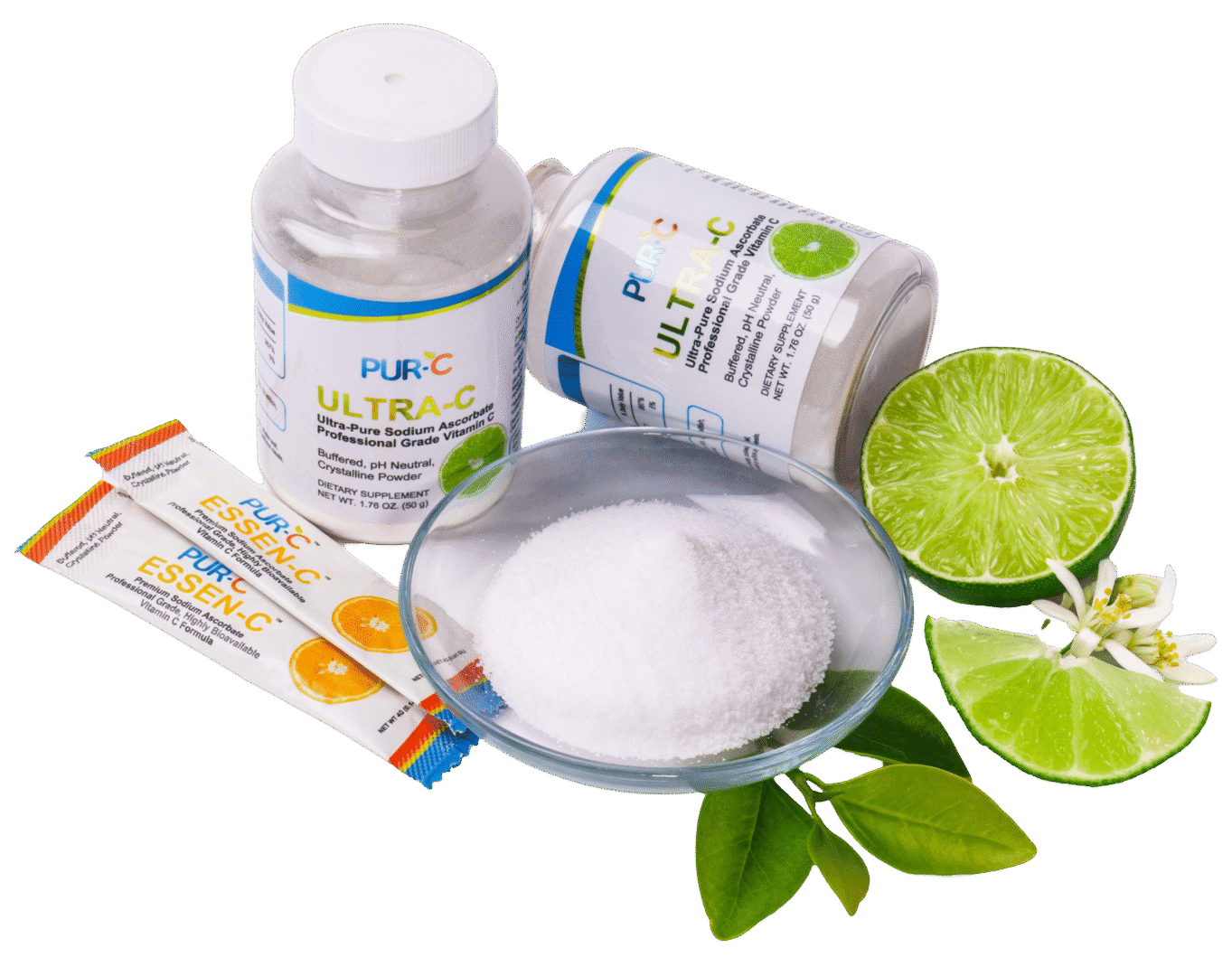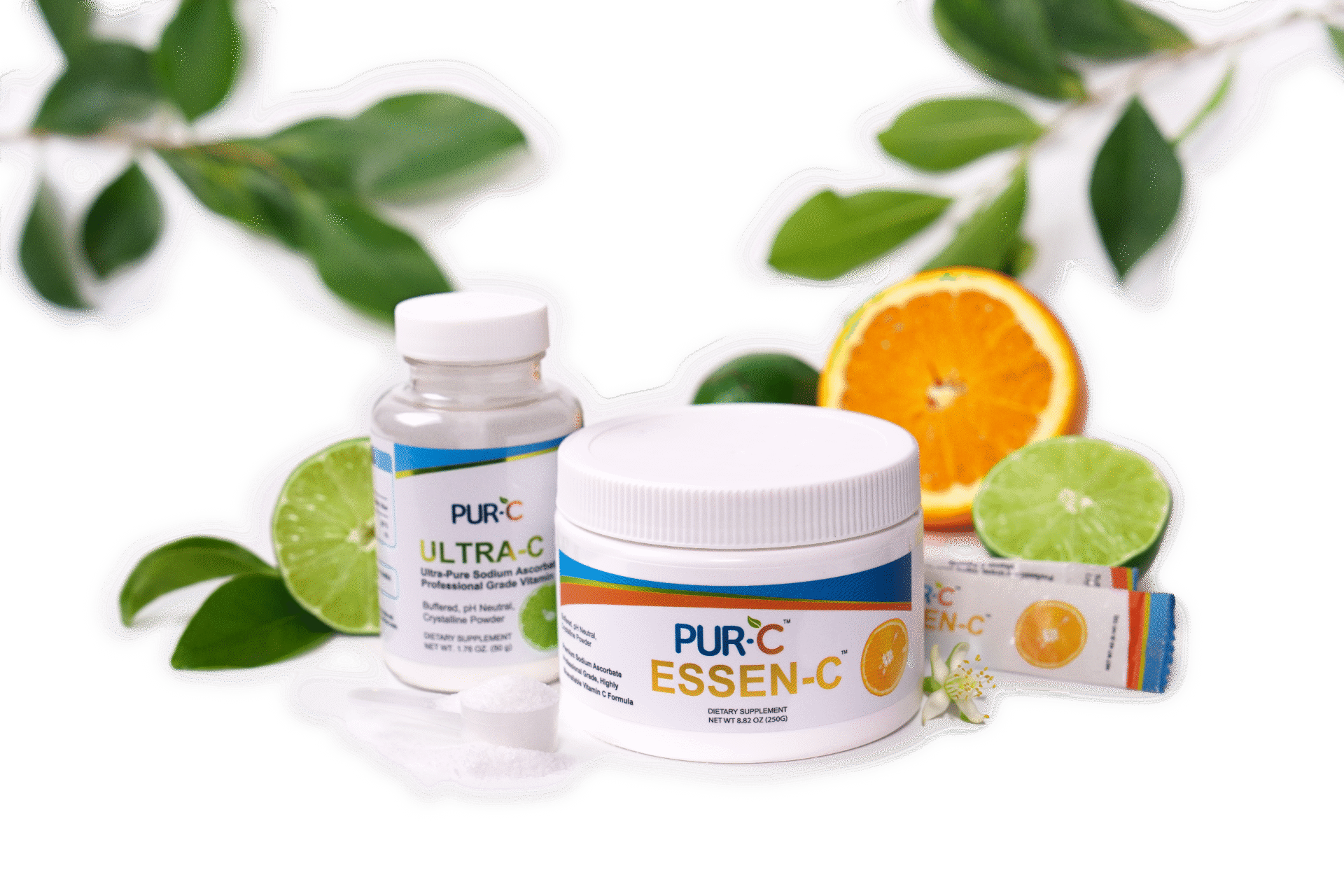PURE-C SODIUM ASCORBATE
At our clinic we use Sodium ascorbate, which is a premium, buffered form of Vitamin C that offers powerful antioxidant support without the acidity associated with traditional ascorbic acid. Specially formulated for optimal absorption and gentle on the digestive system, Pure-C is ideal for individuals seeking a high-quality, non-acidic vitamin C supplement.
Our Sodium Ascorbate supplements use a highly absorbable form of Vitamin C that your body can take in and use more easily. This form is designed to enter your cells efficiently with the help of special transporters in your body. That means more Vitamin C gets to where it's needed inside your cells, while also staying available in your bloodstream to support your body’s natural defense systems.
Unlike regular Vitamin C (ascorbic acid), Sodium Ascorbate is gentler on the stomach and less likely to cause irritation, even at high doses. This is thanks to the sodium it contains, which also helps your body absorb the Vitamin C more effectively.
Because it’s both easy on the body and highly effective at delivering Vitamin C where it’s needed, PUR-C Sodium Ascorbate is ideal for people who need higher doses for medical or therapeutic reasons—offering better results without the typical side effects.
The essential roles and functions of Vitamin-C
Vitamin C, also known as a score acid or ascorbate, is a cornerstone nutrient essential for human health.This professional-grade form of vitamin C is celebrated for its purity, ease of titration, absorptivity, tolerance, and adaptability to various routes of administration, making it an indispensable tool in maintaining optimal physiological levels and enhancing immune support through protocols.


Understanding the differences between Sodium ascorbate and ascorbic acid
Sodium Ascorbate and Ascorbic Acid are both forms of Vitamin C, but they differ significantly in their chemical composition, properties, and clinical applications.
Ascorbic Acid
Ascorbic Acid is the pure, water-soluble form of Vitamin C and is classified as an organic acid due to its low pH, which makes it highly acidic. While it is effective as a Vitamin C source, its acidity can irritate the gastrointestinal tract and peripheral tissues when used in high doses. Additionally, Ascorbic Acid is less stable and more prone to oxidation, especially when exposed to air, heat, or light, which can compromise its potency over time.
Sodium Ascorbate
Sodium Ascorbate, a buffered form of Vitamin C, is created by combining Ascorbic Acid with sodium ions, resulting in a neutral pH. This buffering process significantly reduces the acidity, making it gentler on the stomach and other tissues. Its neutral pH profile provides several advantages:
- Improved Stability: Sodium Ascorbate is more resistant to oxidation compared to Ascorbic Acid, ensuring greater potency and longer shelf life.
- Enhanced Tolerability: The neutral pH reduces the likelihood of stomach irritation and peripheral vein sclerosis, making it suitable for patients requiring high-dose Vitamin C therapy.
- Superior Absorption: Its unique molecular structure facilitates efficient uptake via sodium-dependent Vitamin C transporters (SVCTs), ensuring better systemic bioavailability
In summary, while both Sodium Ascorbate and Ascorbic Acid provide essential Vitamin C, Sodium Ascorbate’s superior stability, tolerability, and bioavailability make it the optimal choice for clinical and therapeutic use, particularly in settings requiring higher doses.

